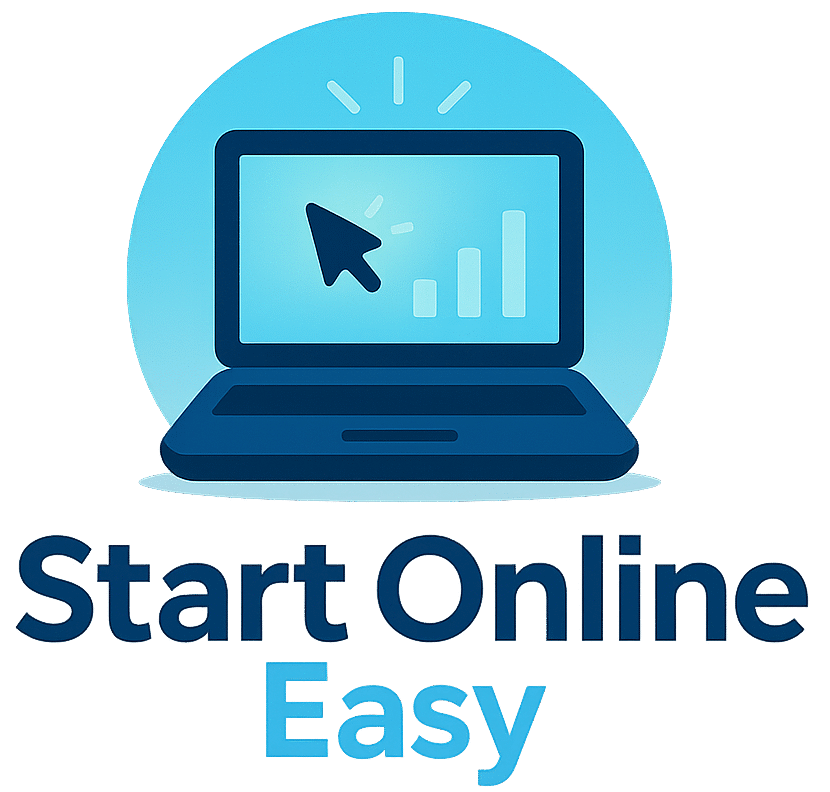Getting noticed online can make or break an online business. With so many websites fighting for attention, knowing the basics of SEO (Search Engine Optimization) can help your site stand out just a little more. SEO is about making your site easy to find, easy to use, and relevant for people searching for what you offer. I’m going to walk you through the essentials every online business owner should know.

What Is SEO and Why Should Online Businesses Care?
SEO is the process of improving your website so it shows up higher in search engines like Google. Most online business traffic comes from people clicking search results. Ranking higher can bring in visitors already interested in what you sell. Even some pretty big brands wouldn’t be where they are without a good spot in the search results.
Search engines look at a bunch of things to decide which sites to show first. Some factors are about your content, some are technical, and some are based on what others say about your site.
If your business is entirely online, or you rely on online sales and leads, the basics of SEO can help you reach more people, attract better quality visitors, and even save money compared to paid ads. Good SEO puts you in front of your target audience, increasing the chances they’ll engage and buy.
Getting Started with the Basic SEO Building Blocks
SEO might seem overwhelming at first, but breaking it down makes it easier to handle. Here’s a quick rundown of the key areas:
- Keywords: The words or phrases people type into search engines when they’re looking for products or services like yours.
- Onpage SEO: Everything on your website that helps search engines understand what your pages are about, like site structure, headlines, meta descriptions, and internal links.
- Technical SEO: The behind-the-scenes stuff like site speed, mobilefriendliness, and making sure search engines can crawl your pages.
- Content: Useful articles, product descriptions, and info that helps your site visitors and gives search engines more reasons to recommend you.
- Offpage SEO: What others say about you on the web. This includes getting other sites to link to yours, also known as backlinks.
Simple Steps to Start Optimizing Your Business Website
SEO doesn’t always require special skills or big spending. Here’s a quick list to get your site moving in the right direction:
- Find Relevant Keywords: Use free tools like Google Keyword Planner or Ubersuggest to brainstorm words people might use to track down what you offer. Focus on terms that fit your niche and aren’t too competitive.
- Organize Your Website: Make sure your navigation is easy to follow. Group similar content, and use clear, descriptive categories and menus. A tidy site isn’t just good for search engines. It keeps users happy too.
- Create Useful Content: Write pages and articles that answer your audience’s questions, showcase your products, or help solve problems. Every page should focus on a main topic, which makes it easier for search engines to understand your intent.
- Optimize Title Tags and Meta Descriptions: Each page needs a unique title that includes your target keyword, and a short meta description that encourages people to visit. These show up in search results and make a big difference in who clicks through.
- Speed Up Your Website: Use image compression and a reliable website host. A slow site frustrates users, and Google pays attention to speed when ranking your pages.
What You Should Know Before Getting Into SEO
SEO isn’t something you set and forget. Here are a few things worth keeping in mind from the start:
- It Takes Time: Changes often take weeks or months to show real results. Patience pays off as you wait for improvements in rankings.
- Algorithms Change: Search engines update how they judge sites, so staying flexible is pretty handy if you want to keep your rankings steady.
- Learning Never Stops: SEO is always shifting. Staying curious gives you an edge over competitors who let their sites gather dust.
- It’s Not Just About Google: Other platforms like YouTube, Pinterest, and Bing play a role, especially for certain audiences or products. Don’t ignore alternative search engines if your audience is there.
How Keywords Work
Keywords connect your website to people searching for what you offer. Choosing the right words is really important, but it’s just as crucial to use them naturally in your site’s titles, headlines, and pages. Google can tell if you’re just stuffing in keywords to try and trick the system, so keeping things readerfriendly is a smart move.
Aim to put your main keyword in the page title, an early headline, and sprinkled throughout the text. But remember, your writing should sound like it’s meant for a real person, not a robot. Mixing in related phrases and answering common questions can make your content even stronger.
How Links Help SEO
Links from other trusted websites show search engines that your business is worth recommending. You can earn links by publishing useful resources, answering industry questions, or getting listed in online directories related to your niche. Not all links are created equal. A glowing link from a respected site is worth much more than dozens from spammy blogs or low-quality directories.
Building connections with others in your industry can pay off by getting you mentioned or linked to. Just avoid shady link exchanges or buying links. These practices can actually hurt your site’s reputation and rankings down the line.
Common SEO Roadblocks and Easy Fixes for Beginners
Even if you do everything by the book, there are a few bumps many new site owners hit along the way. The good news is, most are easy to spot and fix:
- Slow Site Load Times: Driving away visitors and losing search rankings with sluggish pages isn’t worth it. Compress images, limit unnecessary scripts, and use a fast web host to keep things moving.
- Duplicate Content: When the same content shows up in too many places on your site, search engines can get confused. Use original content and avoid excessive copy-paste between pages.
- No Mobile Version: Google and visitors both prefer sites that work smoothly on phones and tablets. Use a responsive design so your content fits any device and keeps your audience engaged.
- Missing Title or Meta Descriptions: Don’t leave these out. They’re a direct line of communication with both search engines and users skimming search results. Make every page count with a custom title and description.
Mobilefriendliness
Most online shoppers browse on their phones. Making sure your site looks good and functions well on any device is now expected. Google boosts mobilefriendly sites in its search listings, so testing your site on different screens is definitely worth your time. Ensure buttons are easy to tap, menus are simple to use, and text is easy to read no matter the screen size.
Security Counts Too
Sites that use HTTPS instead of HTTP are seen as more trustworthy. It’s usually just a matter of switching on an SSL certificate with your website hosting company. This isn’t just safer for your customers, it’s a direct ranking booster too in Google’s eyes. Protect user information and show visitors you take their safety seriously.
Pro Tips for Better SEO With Less Hassle
When you’re feeling confident, these tips can help give a boost to your SEO:
Go Local: If you serve local customers, setting up Google My Business and collecting reviews can help you appear in “near me” results. Getting listed in niche directories for your industry helps as well, giving you greater visibility among those who matter most.
Keep Your Blog Fresh: Posting new articles keeps search engines coming back to check out what’s new. Updates with industry news or helpful guides can make your site stand out for repeat visitors. Fresh content signals your site is alive and active, improving your long-term rankings.
Track Your Progress: Use Google Analytics and Search Console to see what’s working. Watching your most-visited pages, bounce rate, and keywords can help you adjust your approach over time. Those tools offer insight on what your audience likes and what needs improving.
Where SEO Matters Most for Online Business
SEO is important for most things you do online, but there are areas where it really pays off:
- Product Pages: Clear, unique descriptions (with keywords) help your products get found. They also reduce duplicate content issues that can hurt your site’s rankings.
- Blog Posts or Guides: Useful articles, howtos, and reviews answer real customer questions and build trust, while creating more entry points from search engines. These pieces bring value to users and increase your reach.
- Homepage and Main Categories: These set the tone for your business and should clearly spell out what you do and who you help, using keywords users are searching for. Make these pages shine to make strong first impressions and attract targeted visitors.
Frequently Asked Questions
Here are some quick answers to questions I hear a lot from online business owners just starting with SEO:
How long does SEO take to show results?
SEO isn’t an overnight solution. It usually takes a few months to start seeing noticeable changes in your rankings and traffic because search engines need time to process and reflect your updates. Staying consistent pays off in the long run.
Can I do SEO myself or do I need to hire someone?
You can absolutely start on your own and see good results by applying the basics. As your site grows, bringing in an expert or agency can help you get even more out of your SEO efforts and allow you to focus on your business.
What’s the risk if I ignore SEO?
Without good SEO, your site can end up buried where almost nobody finds it, which means missing out on potential sales and growth. Simple efforts like optimizing titles, using keywords smartly, and speeding up your site go a long way toward boosting your online presence and results.
Wrapping Up: Tips for Online Business Owners New to SEO
Building some SEO basics into your regular website routines helps you get found by the right people with less stress and without big ad spending. Over time, you’ll get a feel for what works best for your audience and your products, and organic growth will feel much more natural. Even setting aside a little time each month for ongoing SEO tweaks can make a pretty big difference for your success online.
SEO can seem overwhelming, but just taking a few consistent steps adds up. Remember, it’s about making your site a better experience for both visitors and search engines. That means making information easy to find, speeding up your site, and staying flexible as technology and trends change. With patience and steady effort, you’ll see your online business climb higher in search results—setting you up for long-term growth without relying solely on paid ads.
